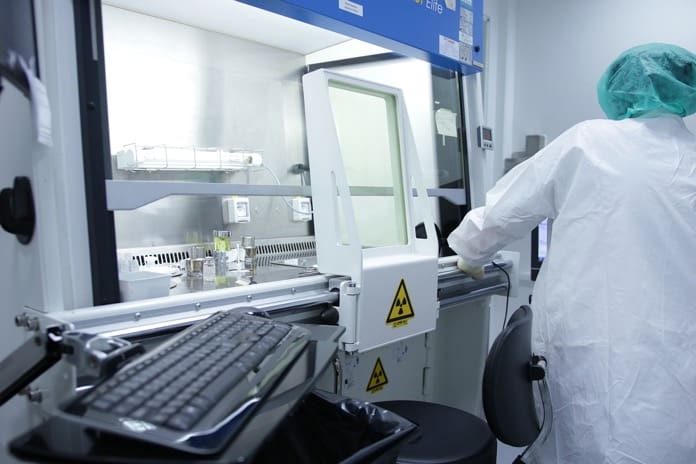A recent study has shed light on mechanisms dictating the relationship between cancer metabolism and the effectiveness of virus-driven targeted therapy.
It has been known for many decades that cancer cells aggressively utilize glucose to fuel their rapid cell growth. This is known as the Warburg effect. In fact, the rate of glucoseutilization in cancer cells is significantly ramped in comparison to normal cells. For this reason, there has been considerable research focusing on how to exploit this facet of cancer cell metabolism and use it for therapeutic purposes.
In a similar fashion, cancer cells are also addicted to glutamine to synthesize macromolecules required for cellular growth. The recent article from Dr. Leonard Seymour’sgroup at the University of Oxford in England has delineated a mechanism on how we can tweak cancer cell’s dependence of these nutrients to enhance the effectiveness of virus-powered targeted therapy.
Novel
oncolytic viruses are currently being tested for cancer therapy
Oncolytic viruses are being increasingly used as targeted therapy to treat cancer. This class of cancer therapy includes viruses whose outer coat has been designed to recognize exclusive antigens present on cancer cells, leaving normal cells unaffected. As cancer cells gain entry into the cancer cell, they rapidly multiply inside the host, eventually leading to rupture of cancer cell and release of additional lytic viruses.
Blocking specific pathways can enhance the therapeutic effect of virus-directed cancer therapy The team of researchers at Oxford University showed that pharmacological blockade of certain metabolism pathways and reduction in the supply of key nutrient in lung, ovary and cancer cells led to a significant improvement in the effectiveness of therapeutic oncolytic viruses. They published their results in Cancer Research.
These maneuvers also allowed the viral particles to replicate faster within the cancer cell and also increased the expression of the critical protein targeting antigen present on cancer cells. Importantly, the reverse phenomenon was also found to be true, as cancer cells that were first treated with oncolytic viruses adapted by ramping up their glucose and glutamine uptake.
Clinical trials needed to evaluate approach in different types of cancer cells
Encouragingly, these effects were recapitulated in mouse models of cancer as well, where these changes in cancer metabolism enhanced the efficacy of viral therapy and caused significant reductions in tumor growth. Although an exciting finding, researchers suggested that it is very important to corroborate these finding in clinical trials and evaluate the relative efficacy of this approach in different type of cancer cells.
Written by Vinayak Khattar, Ph.D., M.B.A.
Reference: Dyer, A., Schoeps, B., Frost, S.,Jakeman, P. G., Scott, E. M., Freedman, J., & Seymour, L. W. (2018).Antagonism of glycolysis and reductive carboxylation of glutamine potentiates activity of oncolytic adenoviruses in cancer cells. Cancer Res. doi:10.1158/0008-5472.CAN-18-1326



